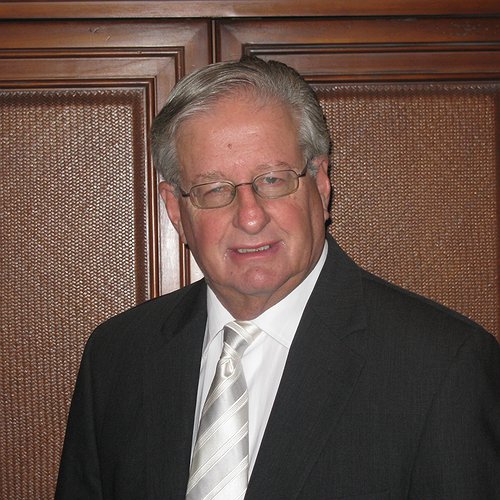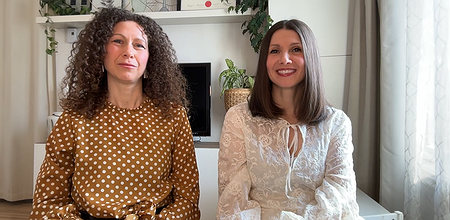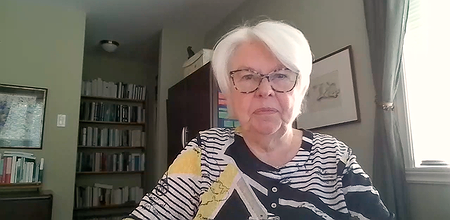- Understand and implement techniques and strategies used by the most successful clinicians
- Effectively establish and monitor the quality of the therapeutic alliance
- Design a sophisticated case conceptualization models to inform treatment decision making,
- Develop an ability to spot HYPE in the field of psychotherapy
How to achieve the best outcomes: the core tasks of psychotherapy
Dr. Don Meichenbaum, Psychologist
Excellence in therapy isn’t a mystery — it’s a set of skills you can sharpen.
Excerpt:
- 2h30 of continuing education
- 14 lessons that last from 5 to 15 minutes each
- 1 certificate of achievement
- 1 PowerPoint
- 1 bibliography
- 1 course evaluation
- 7-day money back guarantee
- Unlimited access
- 97% of participants who completed the satisfaction survey declare they would recommend this course to a colleague
Overview
Robust research shows that approximately 25% of therapists achieve significantly better outcomes — with 50% greater treatment effects and half the dropout rates compared to their peers. These findings, replicated across multiple studies, point to a consistent set of clinical practices that foster better client progress. These are not just traits — they are competencies that can be studied, practiced, and refined.
In this clinical workshop, Dr. Donald H. Meichenbaum will examine the core therapeutic tasks that high-performing clinicians deliberately and consistently apply, regardless of theoretical orientation. You will be invited to reflect on your own practice while acquiring practical tools grounded in empirical evidence.
You will strengthen your ability to: • Build and continuously monitor a strong therapeutic alliance using clear clinical indicators. • Apply a structured and dynamic case conceptualization model to guide treatment decisions throughout the process. • Adopt a strengths-based, resilience-focused approach that supports client change in meaningful ways. • Recognize clinical “hype” and maintain a grounded, evidence-informed practice.
This training highlights a trans-theoretical, constructive narrative framework that can be adapted to a wide range of clinical approaches. It offers experienced clinicians a unique opportunity to refine their work in light of what research tells us about excellence in therapeutic outcomes.
Accreditation
Collège des médecins du Québec
For physicians who practice psychotherapy, training recognized by the Ordre des psychologues du Québec is automatically considered as activities adopted by the Collège des médecins, in accordance with Article 3 of the Regulation.
For physicians who do not practice psychotherapy, the College evaluates each recognition request based on the following criteria:
- the relevance of the activity to the practice of the profession
- the skills and experience of the trainer
- the quality of the content and its adequacy with the physician's practice
- the pedagogical framework of the activity
- the quality of the documentation provided
- compliance with the training objectives set out in the regulation
- the presence of a certificate of participation or an evaluation
About the expert

Dr. Donald H. Meichenbaum, psychologist, is a Distinguished Professor Emeritus of Psychology at the University of Waterloo, Ontario. At the time of his retirement from the University of Waterloo in 1998, Dr. Meichenbaum was the most-cited psychology researcher at a Canadian university.
Since his retirement from the University, he serves as research director of the Melissa Institute for Violence Prevention and Treatment at the University of Miami. As one of the founders of Cognitive Behavior Therapy, Dr. Meichenbaum is well-known for his research and publications on psychotherapy; a survey of members of the American Psychological Association voted him the tenth most influential psychotherapist of the 20th century. He has received a Lifetime Achievement Award from the Clinical Division of the American Psychological Association and was Honorary President of the Canadian Psychological Association. Dr Meichenbaum has presented in all 50 U.S. states and internationally and he has published extensively. His latest book is entitled "Treating individuals with addictive disorders".
Learning objectives
Learning material
A theoretical course illustrated with clinical examples. This course is composed of videos of 5 to 15 minutes each. The PowerPoint of the course to download.
Syllabus
- PowerPoint
- 1. Introduction
- 2. Who Am I
-
Foundations of Effective Psychotherapy
- 3. The Core Components of Effective Psychotherapy
- 4. Generic Case Conceptualization Model- part 1
- 5. Generic Case Conceptualization Model- part 2
-
Key Techniques and Strategies
- 6. The Art of Questioning
- 7. Collaborative Goal Setting
- 8. Core Tasks of Expert Therapists
- 9. Engage in Relapse Prevention
- 10. Feedback Informed Treatment
- 11. To Do Checklist
- 12. Case Conceptualization 1
- 13. Case Conceptualization 2
- 14. Conclusion
- Bibliography
-
Additional Resources
- Handouts
CE Credits
Download a certificate of successful completion.
Audience
This course is intended for all mental health professionals.
Your comments
"An excellent course - Thank you!!!"
A psychologist (Canada)
Registration
Ask a question
Do you have a question? Then email us at contact@asadis.net
Frequently asked questions
-
Is there an evaluation at the end of the course?
To validate the achievement of the learning objectives, a final evaluation in the form of true/false questions is required. It must be completed in order to obtain the certificate of completion.
In addition, an optional self-assessment is offered at the beginning and end of the course, allowing you to measure your progress on the targeted skills.
These evaluations are not graded and are intended primarily to support your professional reflection.
-
I have a disability. Can I receive specific support?
Yes! This training is offered as a pre-recorded video format, without subtitles. If you have a disability, we can provide an adapted alternative (technical assistance for viewing or individual supervision). For any request, please contact our disability coordinator at the following address: contact@asadis.net
-
How long do I have access to the course?
After your registration, the course is accessible anytime and from anywhere with unlimited access.
-
When does the course start?
That is entirely up to you! When you buy a course, you'll receive an access link that you can activate when you want.
-
Is there a student rate?
Yes there is! To learn more, email us at contact@asadis.net.
You may also be interested in:
Legal notice
The courses offered by ASADIS are accredited by different professional organisations. In addition, ASADIS is approved by the Canadian Psychological Association to offer continuing education for psychologists. ASADIS maintains responsibility for the program.
The CPA’s approval of an individual, group, or organization as a CE Sponsor or Provider is restricted to the activities described in the approved application or annual report form. The CPA’s approval does not extend to any other CE activity the Sponsor or Provider might offer. In granting its approval, the CPA assumes no legal or financial obligations to Sponsors, Providers, or to those individuals who might participate in a Sponsor or Provider’s CE activities or programs. Further, responsibility for the content, provision, and delivery of any CE activity approved by the CPA remains that of the CE Sponsor or Provider. The CPA disclaims all legal liability associated with the content, provision, and delivery of the approved CE activity.





